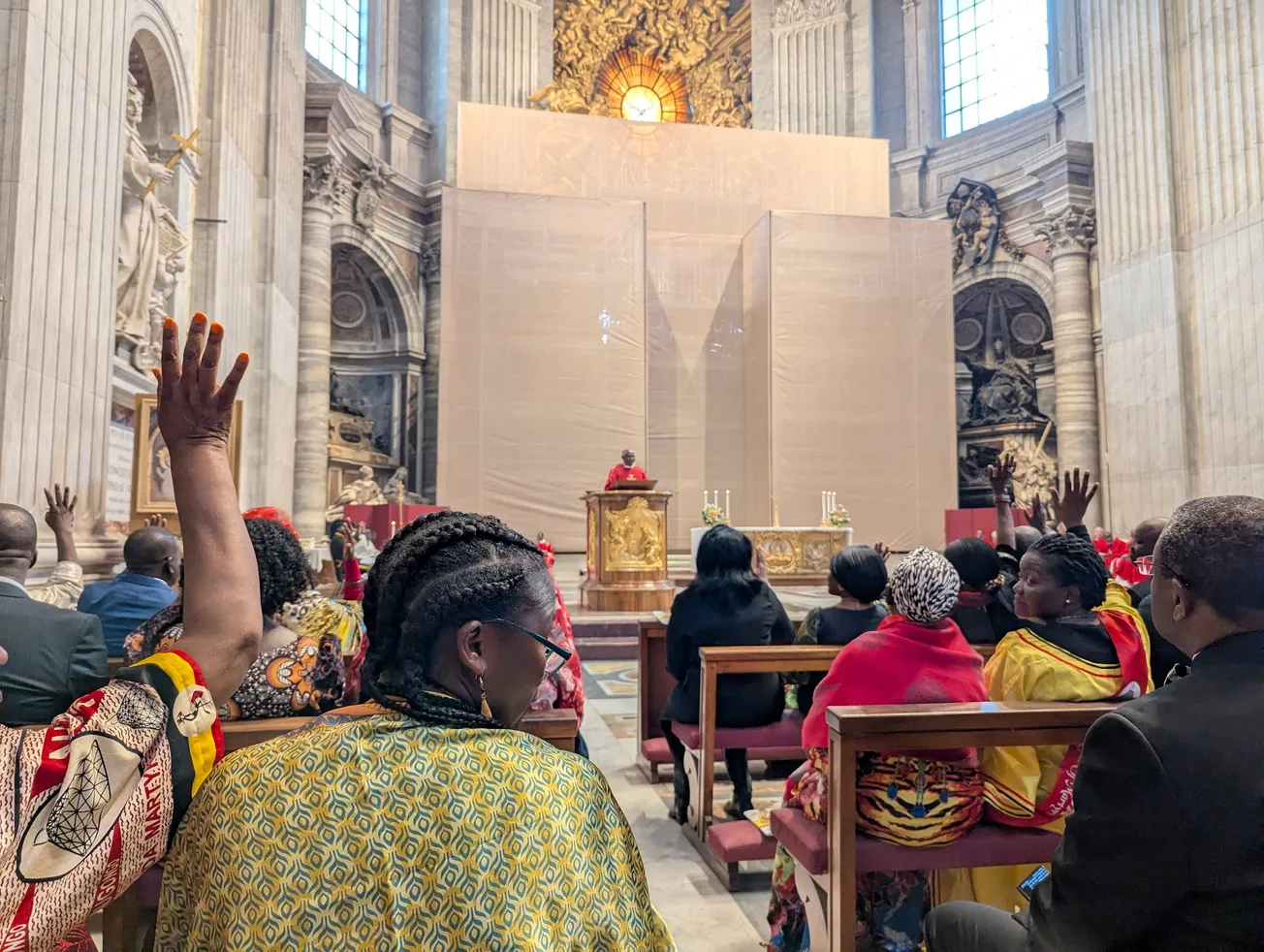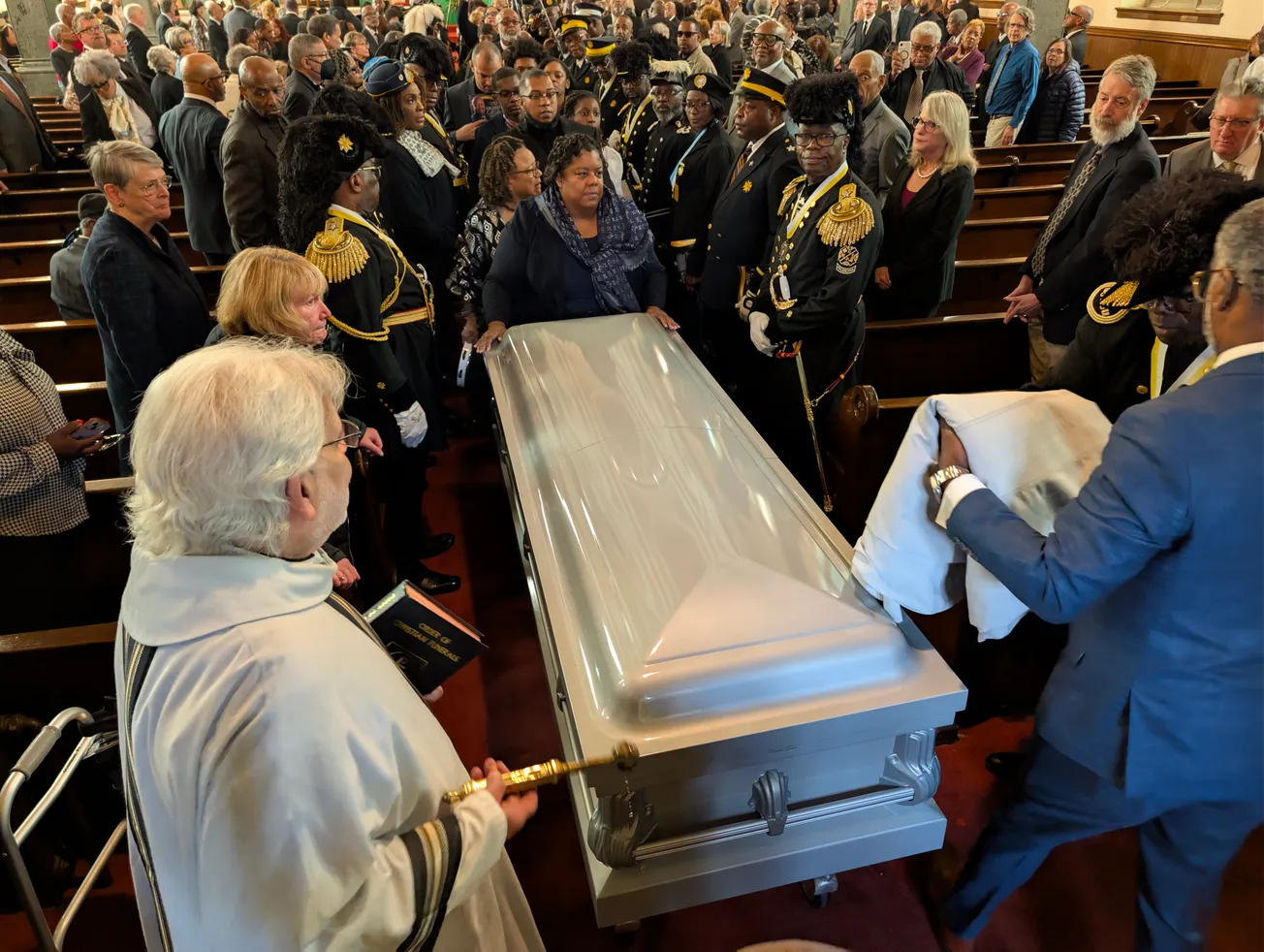VATICAN CITY — Cardinal Peter Turkson of Ghana, chancellor of the Pontifical Academies of Sciences, spoke of a new African era during a homily at St. Peter’s Basilica on Saturday for the 60th anniversary of the canonization of the Uganda Martyrs. The group of mostly young men was murdered for the faith by their king in the late 19th century.
Hundreds of pilgrims from around the world, mostly Africans and some from the United States, gathered for the Mass, celebrated in English, Italian, and Latin. It featured Ugandan flourishes throughout, including traditional processions, chants, and dances led by the beat of African drums and a small orchestra.
The concelebrating clergy included cardinals, archbishops, other prelates, and priests from across the diaspora, while honored guests included high-ranking ambassadors, ministers of state, and a number of Bugandan royals.
Africa is in the house today at the Vatican! A Mass celebrating the 60th anniversary of the canonization of the Uganda Martyrs is taking place at St. Peter's Basilica with Cardinal Peter Turkson of Ghana.
— Nate Tinner-Williams (@natemup) October 19, 2024
Pilgrims are present from around the world, including the United States. pic.twitter.com/yh7ePBlaaK
The pan-African display of unity was played upon by Turkson in his remarks, touting the faith of St. Charles Lwanga and his 21 martyred companions as culturing “an African Christian genome.”
“[It] gave an African form and expression to a global faith movement which was hitherto known just as European and as foreign.”
Lwanga and his fellow victims, accompanied by 23 Anglican converts, are understood to be the first Christian martyrs of Sub-Saharan Africa, which was first evangelized in the modern era by European missionaries.
These included pioneering orders such as the Missionaries of Africa (also known as the White Fathers), led by Cardinal Charles Lavigerie of Carthage. They were championed by Turkson during his homily, which weaved together the story of evangelists and evangelized alike to paint a picture of Black Catholicism in the motherland.
Even so, his narrative did not neglect the previous eras of African Christianity, as he also put forward the Uganda Martyrs as being in the same continental line as martyr-saints Perpetua and Felicity, Cyprian, and even the three early African popes.
The canonization of the Ugandan Martyrs in 1964—Pope St. Paul VI’s first such act as supreme pontiff, and the first ever for Sub-Saharan Africans—reverberated as a sign of faith throughout the African diaspora, with devotion to the new saints stretching from East Africa all the way to the United States, where several churches bear their name today.
This cultural interplay was perhaps unwittingly displayed during the Mass on Saturday at St. Peter’s, where the African choir sang as the offertory hymn an African-American spiritual, “Let Us Break Bread Together.”
Turkson emphasized the sign of martyrdom as “the seed of the Church” more generally, linking the deaths of Lwanga and his companions to similar displays of unwavering faith in North Africa, Europe, Korea, China, and elsewhere. (Incidentally, Saturday was the feast of the North American Martyrs, a group of Jesuits killed for the faith by Indigenous people in the 1600s.)
Turkson also construed the Uganda Martyrs as a source of continued healing on the African continent from religious persecution, corruption, and “other evils” in modern African society.
“Bathed in the blood of these martyrs and with their intercession, may Africa begin a new era,” Turkson said, calling attention to the synodal deliberations of African church leaders during their convocation of bishops in 2009.
“Let us, on this auspicious day of grace and favor, commend our own selves to the intercession of these martyrs, who stand before God, as we endeavor to become artisans of hope and peace for Uganda, for Africa, and for the world. For this, may the Martyrs of Uganda, holy and illustrious sons of Africa, always pray for us. Amen.”

Nate Tinner-Williams is co-founder and editor of Black Catholic Messenger.










